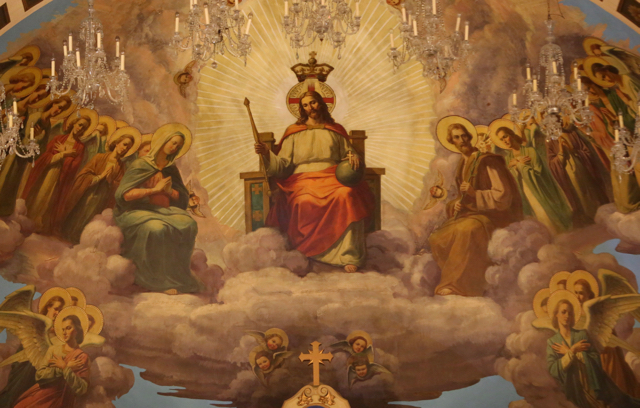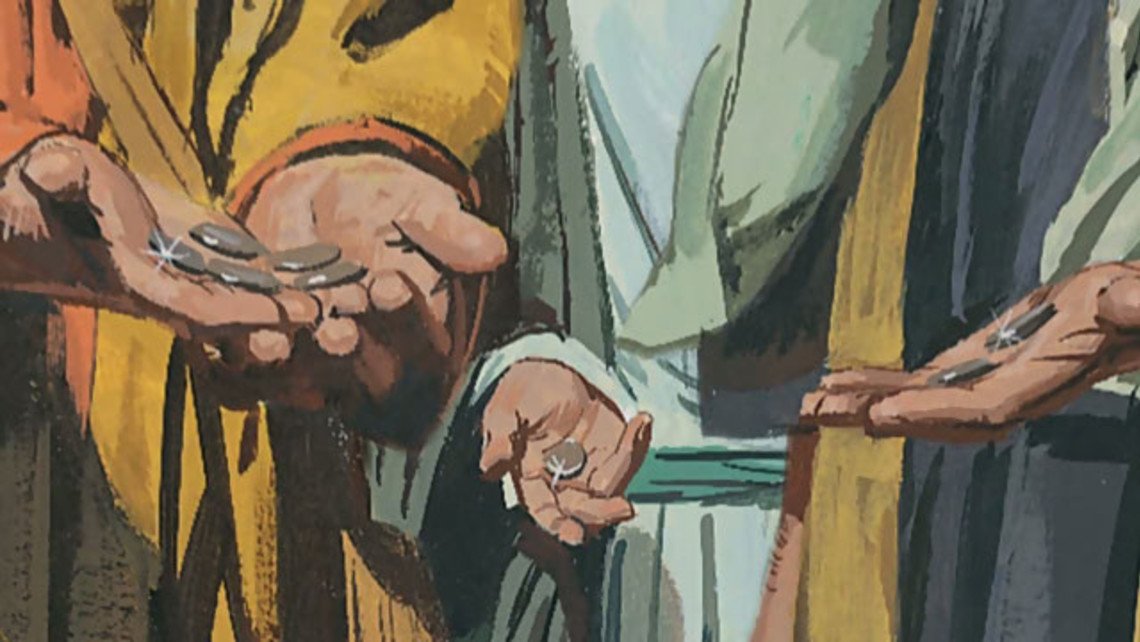What It Means To Be Watchful And Alert
Rev. Marcel Divine Emeka Okwara, CSsR
Homily for the First Sunday of Advent, Year B
St. Alphonsus Catholic Church, Brooklyn Center, MN
Sunday, December 3, 2023
We’ve come to the beginning of the liturgical year in the life of the Church. We’ve come to Advent, Adventus in Latin, which means “coming” or “arrival.” As you already know, Advent is a time of preparation for the celebration of the birth of Christ at Christmas and his return at the Second Coming. In our today’s Gospel (Mark 13:33-37), Jesus urges, “Be watchful! Be alert! You do not know when the time will come.” What time? The time of his coming that is happening right now in the life of the Church and his definitive coming at the end of time, his Second Coming. What does it mean to be watchful and alert? First and foremost, to be watchful and alert is to love God with all your heart, mind, soul and being. It is to persistently and delightfully find rest and refuge in God. God is the Summum Bonum, the Highest Good. To stay awake therefore is to make God the greatest pursuit of your life. Nevertheless, this does not stop you from living your ordinary life. It does not prevent you from having interests in entertainment, in politics, in social issues, in science, in finance, in marketing, in innovation, in friendships, in family, in religion, in community organizing, in advocating for justice and peace etc. Christianity is not a sad and depressing journey. As human beings, we are definitely going to be interested in other things, but if the organizing principle of our life and activities is God alone, then we are spiritually alert and vigilant. If Jesus is at the center of everything we do, if he is the Governor and the commanding General of every sector of our life, then we are watchful disciples of Jesus.
What else do we need to do to stay awake and be alert? The great St. Augustine said, “Keep awake with your heart, with faith, with charity, with good works.” What does that mean? Love others! Look upon others with affection and understanding, be aware of the needs of those around you, see Jesus in them and consider the help you render to them as part of preparing for the arrival of Jesus. Check this out! If you see Jesus in the needy, in those who live on the margins of the society, in the “unlovable,” we derogatorily call “losers” “bozos” “hobos” “bums” “tramps” etc. I tell you, you will never pass them by without doing something, or at least think of what you can do to help. We can give reasons why some people find themselves on the outer side of the society begging for charity. We can blame them. We can look the other way when we see them. We can conclude that they are irredeemable and can’t be helped. We can be overwhelmed by the fact that we can’t solve all their problems. And you may be right. But I don’t think we are called to solve all their problems. To think you can do so is actually problematic because you may have “messianic tendency.” Just be aware of the tears and needs of others, and if you are able to attend to it, move, act. Do something! Stop the blame game of “It is their fault” or “It is their problem.” In reality, it might actually be our fault. In fact, it is all of our problems. For the great civil rights icon, Dr. Matthew Luther King, Jr. “Injustice anywhere is a threat to justice everywhere.” We are connected to one another the way organs in the body are connected. Although individualism has so affected us, the unyielding fact is that whatever society we have is by a social contract. As members of the Church, whether we like it or not, we are connected to all the saints, but not just the saints alone but the good, the bad, the ugly and the indifferent. The duty of an awakened Christian is not to apportion blame, but to do what he or she is able to do to make the life of another better. In John 3:17, Jesus says, “For God did not send his Son into the world to condemn the world, but that the world might be saved through him.” If God the Father did not send God the Son into the wicked world to judge and condemn the world, why are we judging and condemning people? The abject poverty in any society is an indication that all is not well with us and with the system we have in place. When you see someone on the margins of society, look at the person through a theological lens of “This is me, even if not in the material sense but in the spiritual and moral sense.” May the material poverty of others wake us up to reality— that I might be this poor spiritually.
What’s the enemy to being watchful and being alert? It is the bad sleep of negligence. It is the nightmare of indifference and clinging to one’s private egotistic needs. It is the horror of centering one’s life on one’s own ego, desires and concerns alone, while failing to pay any attention to others. Stoicism is not a Christian principle per se. Apathy or disinterestedness is not a Christian virtue. However, becoming an unproductive alarmist is also not the way to go. A watchful Christian is aware of the tears and the needs of our neighbors, and also realizes that it is in serving them that we serve the Lord. By doing this, the Christian counters the indifference and cruelty in the world and shines a spotlight in the goodness that still exists in people. The enemy to the Lord’s call to “Be watchful!” and to “Be alert” is discouragement, lack of hope, and disappointment. Keep this in mind: Jesus is coming into the world, not as a severe Judge who seeks to punish us, rather as a helpless and poor child who asks us to welcome him as he lays in the manger meant for animals.








